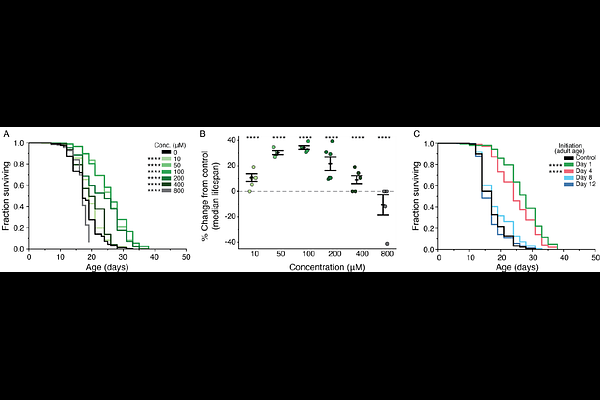The broccoli derivative sulforaphane extends lifespan by slowing the transcriptional aging clock

The broccoli derivative sulforaphane extends lifespan by slowing the transcriptional aging clock
Sedore, C. A.; Segerdell, E.; Coleman-Hulbert, A. L.; Johnson, E.; Levi, J. N.; Lithgow, G. J.; Driscoll, M.; Phillips, P. C.
AbstractSulforaphane, an organosulfur isothiocyanate derived from cruciferous vegetables, has been shown to inhibit inflammation, oxidative stress, and cancer cell growth. To explore the potential of sulforaphane as a candidate natural compound for promoting longevity more generally, we tested the dose and age-specific effects of sulforaphane on C. elegans longevity, finding that it can extend lifespan by more than 50% at the most efficacious doses, but that treatment must be initiated early in life to be effective. We then created a novel, gene-specific, transcriptional aging clock, which demonstrated that sulforaphane-treated individuals exhibited a \"transcriptional age\" that was approximately four days younger than age-matched controls, representing a nearly 20% reduction in biological age. The clearest transcriptional responses were detoxification pathways, which, together with the shape of the dose-response curve, indicates a likely hormetic response to sulforaphane. These results support the idea that robust longevity-extending interventions can act via global effects across the organism, as revealed by systems level changes in gene expression.